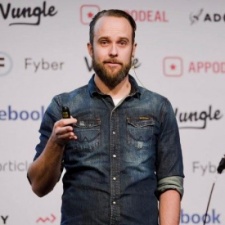It was only a few months ago that rumours started circling about a potential initial public offering for Angry Birds developer Rovio.
There were also rumours that Tencent was circling, ready to acquire the company in a deal that might value it at $3 billion.
Specultation began heating up on what might happen, and then on September 5th 2017 the company officially announced its intention to float on the Nasdaq Helsinki.
Further details emerged that the flotation could value the company as high as $1 billion (you can read our full breakdown of Rovio’s pragmatically Finnish IPO here).
Not just capturing the attention of the world’s media, it’s caught the eye of investors too with the public offering of shares in the company discontinued due to oversubscription.
As of September 29th, Rovio has now announced that trading in shares has commenced on the prelist of the Nasdaq Helsinki. Shares are estimated to move on to the main market of Nasdaq Helsinki on October 3rd.
Record revenues
It all caps off an astonishing year and a half for the company.
“We've grown a lot. We had our best games quarter ever in Q1 and we had our best games quarter ever in Q2,” Rovio Executive VP of Games Wilhelm Taht tells PocketGamer.biz during Pocket Gamer Connects Helsinki 2017, just before the announcement of the listing's oversubscription.
“It's growing fast and I think the overall sentiment, feeling and culture are very positive.”
We’ve written a number of articles previously on Rovio’s turnaround following a slow start to free-to-play and how it also changed the fortunes of Angry Birds 2 to make it into one of the top grossing mobile games in the US.
As Rovio looks forward, its new wave of games that includes Battle Bay, Angry Birds Evolution and Angry Birds Match are said to be “off to a much better start” than any of Rovio’s previous launches, including Angry Birds 2, which though it had a strong influx of downloads, was a initially “a little bit disappointing” from a KPI perspective.
It’s probably why in the 12 months leading up to September, Rovio spent $45 million on user acquisition, up from $20 million last year. And Taht says the current run-rate is higher than that still.
With a promising start for these new games, the success of The Angry Birds Movie and a clear business strategy, it looks like it’s the perfect time for Rovio to IPO.
There are very interesting consolidation opportunities out there, and naturally studios is also one of them.Wilhelm Taht
Taht says the listing would help support Rovio’s growth strategy and help provide better long-term incentive plans for its various studios, and indeed the entire company.
Part of that growth plan is also M&A activity.
“It's not necessarily always acquiring a full studio,” says Taht.
“It could be acquiring a team, acquiring a technology or acquiring IP that works very well from a funnel conversion point of view but doesn't necessarily monetise. There are very interesting consolidation opportunities out there, and naturally studios is also one of them.”
The time is now
There have been suggestions that maybe Rovio’s IPO is in fact late, that this could have happened years ago when the company was the hottest mobile developer in the world thanks to the success of the premium Angry Birds games.
While Taht can’t comment on previous strategic decisions, he speculates that had Rovio listed at a time when the industry was shifting from premium to free-to-play, and the company itself was transitioning from just games to an entertainment company, it could have created even bigger challenges for the firm.
“We've come a long way from a games only company to an entertainment powerhouse, then shifting focus to free-to-play and then morphing into who we are today,” he says.
“We are stronger now than ever before. The fact that we stand on this foundation, where we've ticked, in our opinion, the success factors you need to tick in free-to-play mobile gaming, it means that we can grow substantially into the future as well. We've grown very fast over the year and a half.”
And what of those acquisition rumours prior to its IPO announcement? Again, Taht is coy on specifics, but says: “In general for any company with large entertainment franchises and reasonable business, of course there's going to be interest over time.”
It looks like Rovio is once again becoming one of the hottest tickets in town in the mobile space as it moves to the next phase as a publicly traded, games-first entertainment company.





















